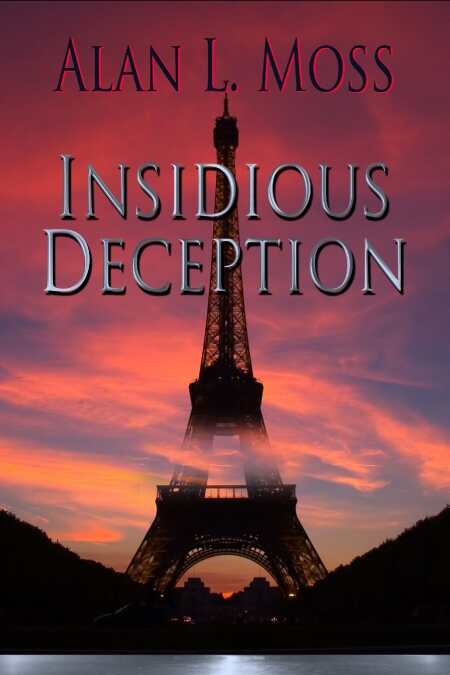
Insidious Deception
As thrillers go, Insidious Deception is more aqueduct than waterslide. It starts off with a bang, but settles in to a languid yet ever so gradually escalating pace that eventually erupts into a cascade. This is a gutsy choice, as many might lose interest between chapters four and fourteen, but those who stay the course will reap the reward that Moss has set for them over the next 350 pages.
Moss is to be commended for creating simple, honest and, most of all, believable characters. His heroes and villains are straightforward, focused, intelligent, and normal. This is how Moss “sells” his tale of terror, political intrigue, and corporate mayhem. He makes the reader believe that his story could, and even might, happen. That is no small accomplishment in any genre, let alone a thriller.
The story revolves around a conspiracy by a corporate magnate to corner the market on rare earth minerals. To do so he needs the help of the president. When he says “no,” the magnate decides it is time to put his own man in the White House. To make that new man popular, the industrialist decides his chosen one must do nothing less than bring peace to the Middle East.
Many authors attempt to fictitiously resolve the Middle East crisis. Moss is unique among them, however, because his plan is not far-fetched, nor does it depend upon some apocryphal event or magic technological breakthrough. It also comes with the caveat that it will work only if rational players push aside the irrational. Moss even sets up a devil’s advocate who forces the professor character he has created to devise the plan to defend it. This is a brilliant device, as it heads off and answers doubts the reader might have about the veracity of this key part in the overall plot.
As thrillers go, Moss’s book is a quiet one, with more intelligent talk than overblown action. People do die, and in unpleasant ways, but except for one incident involving a drone disguised to look like a bird, never in ways that seem overly scripted or melodramatic. Moss’s chief antagonist, Rex Raymond, might have his fingers in too many pies and have more resources than most presidents or prime ministers can call upon; still, he is no James Bond villain. Greedy and megalomaniacal as Raymond is, his villainy is not the overreaching world domination type, but more that of a puppet master who not only pulls the strings but attaches them to his marionettes.
The two principal protagonists, Rob Taylor and Professor Steve Arens, are similarly real-world type characters. Taylor does rise too easily and quickly to a position where he can try to foil Raymond’s scheme, but every author is allowed a little deus ex machina-type liberty, if only to save time and keep things moving.
Many thrillers are pure throwaway beach reads; half-chewed and tossed aside well before they are digested. Insidious Deception is not such a book. It takes time to read, and while its more thoughtful passages may be more than some fans of the genre are prepared to wade through, others looking for a more plausible and probable plot will be pleasantly relieved.
Reviewed by
Mark McLaughlin
Disclosure: This article is not an endorsement, but a review. The publisher of this book provided free copies of the book and paid a small fee to have their book reviewed by a professional reviewer. Foreword Reviews and Clarion Reviews make no guarantee that the publisher will receive a positive review. Foreword Magazine, Inc. is disclosing this in accordance with the Federal Trade Commission’s 16 CFR, Part 255.
